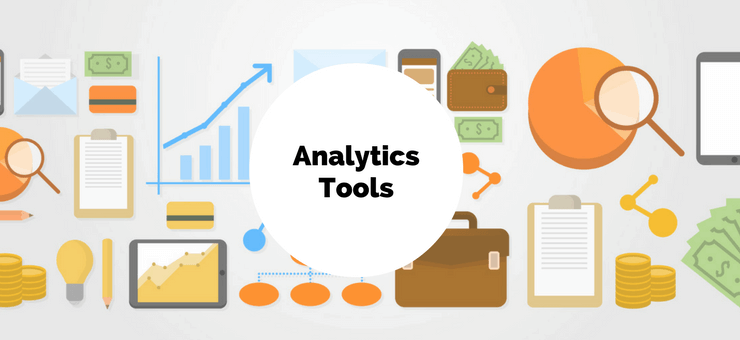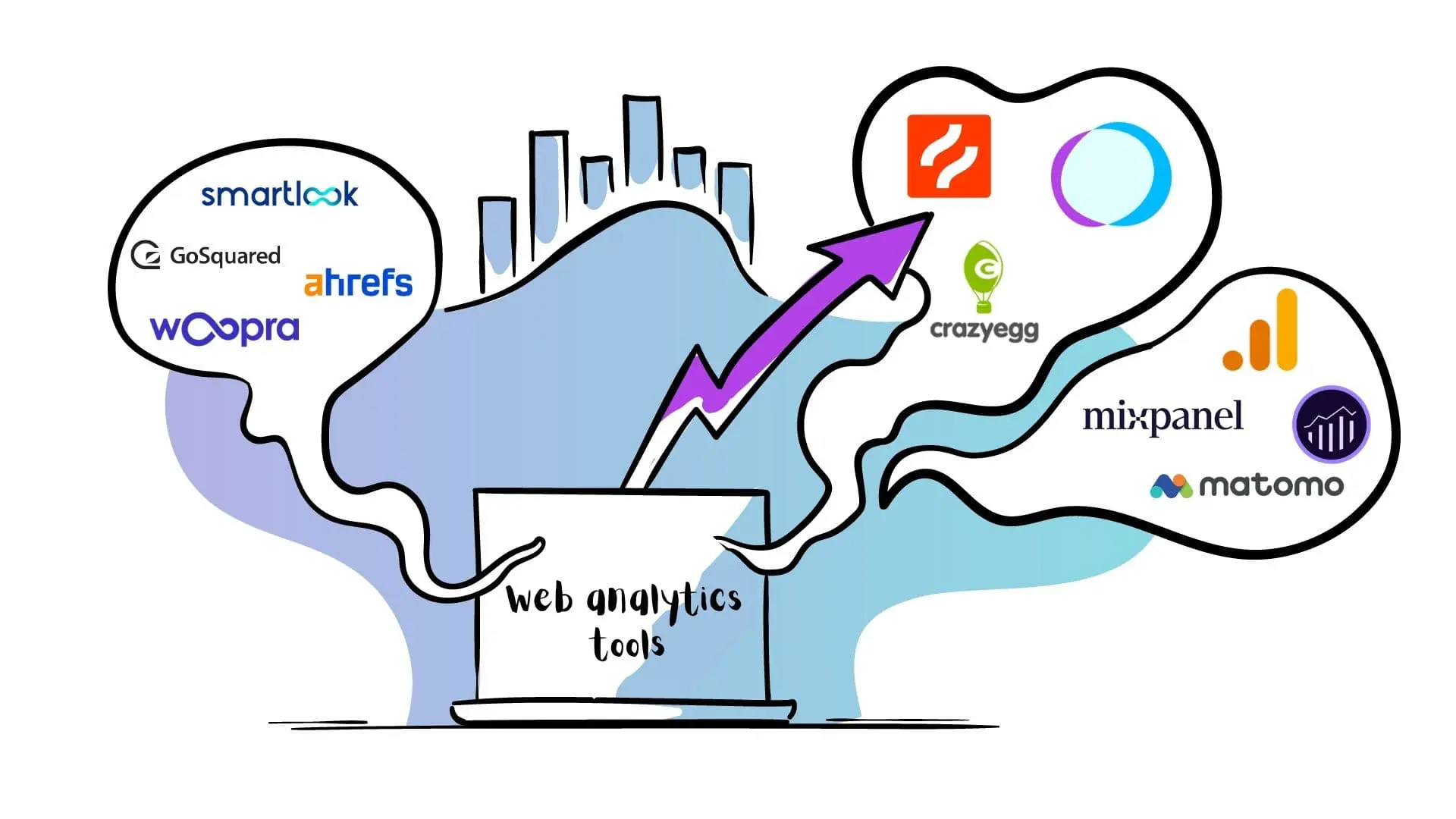Leverage Predictive Analytics for Future-Ready Choices
Leverage Predictive Analytics for Future-Ready Choices
Blog Article
Take Full Advantage Of Development: How Analytics Drive Better Methods
In today's data-driven landscape, organizations progressively acknowledge the critical role of analytics in forming efficient development techniques. By taking advantage of information understandings, businesses can refine their operational methods, expect market adjustments, and boost client engagement. Nonetheless, the challenge exists not only in collecting data yet in properly translating it to drive tangible outcomes. As we discover the essential advantages and approaches related to analytics, an important question emerges: exactly how can companies guarantee they are leveraging these insights to open their full possibility? The answer may redefine the future of strategic planning.
Comprehending Data Analytics
Data analytics is a systematic computational analysis of data that enables companies to reveal purposeful patterns and insights. This process encompasses a variety of techniques, consisting of statistical analysis, predictive modeling, and data mining, which jointly intend to change raw data right into workable info - Analytics. By employing these approaches, organizations can make informed decisions that are rooted in empirical proof instead than instinct alone
The structure of data analytics depends on its capacity to take care of huge amounts of info from varied sources. This consists of organized information, such as databases, and unstructured data, consisting of social media interactions and consumer feedback. With using specialized software and tools, analysts can draw out and refine this information efficiently, identifying fads and connections that might not be promptly evident.
Recognizing data analytics also includes acknowledging the value of data quality and integrity. Reliable and precise data is important for meaningful evaluation; therefore, companies need to apply robust data governance practices. The iterative nature of analytics enables for continuous improvement and improvement of strategies, making certain that organizations continue to be agile in the face of changing market characteristics and consumer behavior.
Key Advantages of Analytics

One of the crucial advantages of analytics is its capability to give workable insights. Organizations can promptly analyze vast quantities of data, discovering patterns that may not be promptly noticeable. This assists in expecting market shifts and adjusting techniques accordingly. Additionally, analytics cultivates a society of evidence-based decision-making, reducing dependence on intuition and uncertainty.
One more substantial benefit is improved customer understanding. Analytics devices allow services to segment their audience, track consumer habits, and personalize advertising and marketing initiatives. This targeted technique not only boosts consumer involvement but also drives higher conversion rates.

Implementing Analytics Approaches
To totally realize the benefits of analytics, companies should adopt organized approaches for implementation. This starts with clearly specifying objectives that straighten with wider service goals. By developing details, quantifiable end results, organizations can concentrate their analytics initiatives on locations that yield the greatest roi.
Next, organizations ought to prioritize data governance to make certain the honesty and security of the data being examined. This involves establishing up protocols for data collection, storage space, and accessibility while sticking to pertinent laws. Making certain top notch data is vital for producing purposeful insights.
Moreover, fostering a society of data-driven decision-making is important. This requires training employees to interpret analytics searchings for and motivating collaboration across divisions. When teams comprehend the worth of analytics, they are most likely to incorporate understandings into their everyday procedures.
Finally, organizations ought to frequently evaluate and improve their analytics approaches. The landscape of data and modern technology is continuously developing, and staying adaptable will certainly enable organizations to utilize brand-new tools and approaches effectively. By applying these structured strategies, companies can make best use of the effect of their analytics campaigns and drive lasting development.
Tools for Effective Evaluation
Effective evaluation counts on a variety of devices that help with the removal of insights from information - Analytics. These tools can vary from easy spread sheet applications to advanced machine discovering platforms, each serving an unique function in the logical process
Information visualization software application, such as Tableau and Power BI, plays a crucial function in changing complex datasets into reasonable visual representations. These tools allow experts to recognize patterns and patterns promptly, allowing for more educated decision-making.
Analytical evaluation software program, like R and SAS, supplies innovative capacities for performing extensive evaluations, including regression, hypothesis testing, and predictive modeling - Analytics. These functions empower organizations to draw significant verdicts from their information, recognizing possible opportunities and risks
Additionally, database administration systems such as SQL try this out and NoSQL databases offer the needed facilities for keeping and inquiring big quantities of information effectively. They make sure Visit This Link that data is organized and available for analysis.
Finally, company intelligence platforms incorporate different data sources, providing a comprehensive view of business efficiency. By using these tools efficiently, companies can enhance their logical capacities, enabling them to develop strategies that take full advantage of growth and improve total performance.
Case Studies of Success
Effective companies frequently leverage information analytics to drive impactful methods, as evidenced by several remarkable situation studies. One noticeable instance is Netflix, which utilizes innovative algorithms to analyze customer preferences and actions. By utilizing these insights, Netflix has actually successfully customized its content referrals, leading to increased customer interaction and client retention. Their data-driven technique has actually most certainly contributed to their standing as a leading streaming service.

In addition, Starbucks uses information analytics to establish the original source optimum shop areas and improve its item offerings. By examining customer demographics and purchasing patterns, Starbucks successfully identifies high-potential markets and tailors its menu to local preferences, driving sales and consumer commitment.
These study highlight that reliable application of information analytics can cause critical benefits, promoting development and growth within organizations throughout numerous sectors.
Final Thought
To conclude, the combination of analytics into business approaches dramatically boosts decision-making processes and fosters lasting development. By leveraging data-driven insights, companies can identify fads, expect market shifts, and maximize procedures. The efficient implementation of analytics devices better supports dexterity and advancement, making it possible for organizations to navigate competitive landscapes with greater accuracy. Eventually, a commitment to analytics not just drives immediate efficiency enhancements but additionally protects long-term success in an ever-evolving market.
Information analytics is a systematic computational evaluation of data that allows companies to uncover purposeful patterns and insights.Comprehending information analytics also includes identifying the significance of information top quality and integrity. Exact and dependable data is critical for meaningful analysis; therefore, companies must carry out durable information governance methods.Following, companies need to prioritize data governance to make sure the honesty and security of the data being examined.Effective companies usually leverage data analytics to drive impactful methods, as shown by numerous notable case studies.
Report this page